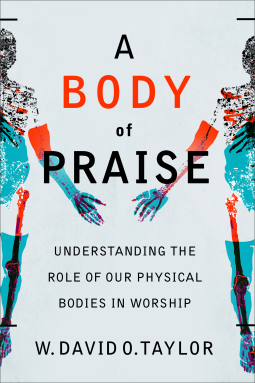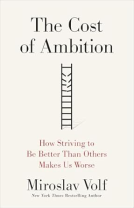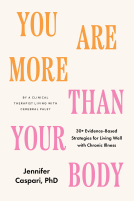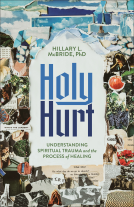
A Body of Praise
Understanding the Role of Our Physical Bodies in Worship
by W. David O. Taylor
This title was previously available on NetGalley and is now archived.
Send NetGalley books directly to your Kindle or Kindle app
1
To read on a Kindle or Kindle app, please add kindle@netgalley.com as an approved email address to receive files in your Amazon account. Click here for step-by-step instructions.
2
Also find your Kindle email address within your Amazon account, and enter it here.
Pub Date 28 Mar 2023 | Archive Date 11 Apr 2023
Baker Academic & Brazos Press | Baker Academic
Talking about this book? Use #ABodyofPraise #NetGalley. More hashtag tips!
Description
By drawing on the wisdom of the Bible, church history, and theology, and by taking advantage of the unique insights of the arts and sciences, ethics, and spiritual formation, a respected theologian and pastor argues in this book that there is something for our physical bodies to do that decisively forms Christlikeness in us within the context of corporate worship. What we do with our postures, gestures, and movements in worship matters. How our senses of sight, scent, sound, taste, and touch are involved in worship matters. How our spontaneous and prescriptive activities form us in worship matters. All of it matters to faithful and fulsome worship for the sake of a body that is fully alive in the praise of God.
Advance Praise
“‘The body is his book’ said the poet John Donne about human love, and in this excellent, nuanced, and well-timed study, David Taylor explains how the body is indeed the ‘book’ of our relationship with the love of God. The bodily dimensions of worship are explored with comprehensive empathy and scholarly depth. As we wrestle with the long-term impact of the pandemic on our worship practices, this work is an indispensable resource.”—Rowan Williams, former Archbishop of Canterbury
“The role of the human body in Christian worship has been neglected for too long but is now significantly enriched by Taylor’s work. This book is wide in scope yet deep in wisdom. His writing displays a lifetime of scholarship and reflection, now brought together in mature form for the benefit of worshiping communities everywhere.”—Constance M. Cherry, professor emeritus of worship and pastoral ministry, Indiana Wesleyan University; professor, doctor of worship studies, The Robert E. Webber Institute for Worship Studies
“Against our culture’s increasingly transhumanist anthropology, David Taylor reminds us that to be human means not merely to have a body but to be embodied. And at the heart of God’s design for embodied persons made in his image is worship—worship that praises God, celebrates his good creation, and joyously engages every dimension of our corporeal and corporate existence.”—Joel Scandrett, associate professor of historical theology, Trinity School for Ministry
“David Taylor has curated the story of the body throughout church history in a clear, concise, and compelling way. This book is for both lay leaders and the academic, with rigorous research that gives both a macro- and microperspective on what it means to live as bodies in a world aching for the redemption of all things. The collective minds and hearts of Christians need this book as we learn and relearn what the body has known all along.”—Lore Ferguson Wilbert, author of A Curious Faith and Handle with Care
“David Taylor’s thoughtful and highly readable work shows that, whether it’s ‘free church’ or ‘liturgical,’ holistic worship must engage the whole body in all its senses. He makes his case by drawing from a wide range of studies: from Scripture and Christian tradition to the arts and sciences. This book should effectively put to rest the notion that online worship can be an adequate substitute.”—Simon Chan, former lecturer in systematic theology, Trinity Theological College, Singapore; editor of Asia Journal of Theology
“The topics of this book are close to my heart and close to the needs of the church today. Taylor knows that good theology and good practice form a whole, and he lays that out in ways that will bless us body and soul. This book will be useful across a wide variety of worshiping traditions.”—Beth Felker Jones, professor of theology, Northern Seminary
“This well-written, vivid study on the role of our bodies in corporate worship is timely and helpful in the wake of our recovery from the COVID-19 pandemic. Taylor correlates the theological and pastoral wisdom of the church with the findings and insights of the arts and sciences to show how the triune God interacts with his people bodily in worship and engages them spiritually with their physical senses of sight, smell, sound, taste, and touch.”—John W. Kleinig, emeritus professor, Australian Lutheran College; author of Wonderfully Made: A Protestant Theology of the Body
“As striking as Ezekiel’s vision of enfleshing bones, Taylor knits together the motivating force of grief in a world reluctantly awakened to our common fragility. Involved in the human-God story through the provocation of perplexing questions, we are encouraged to trust and begin to live into the gifted smallness of our bodies as we reflect the glory of the divine image. Through overcoming the wounds we pile on others and ourselves by a host of misconceptions, this book, at once exhortation and evidence, invites us into newness and renewal. No longer dry, we rise.”—Cecilia González-Andrieu, professor of theology and theological aesthetics, Loyola Marymount University; author of Bridge to Wonder: Art as a Gospel of Beauty
Available Editions
| EDITION | Other Format |
| ISBN | 9781540963093 |
| PRICE | US$26.99 (USD) |
| PAGES | 224 |
Available on NetGalley
Featured Reviews
I grew up wanting all of this to not be true. I didn't want to believe that my physical body had some sort of role in worship, though at least part of this wanting came out of my deeply ingrained childhood messaging that my body was disabled, my body was less, and my body was not worthy.
I wouldn't say that I ever bought into the idea that my body was useless, but I would say that I saw my body as more functional than worthy.
Over the years, this viewpoint began to change. I grew up a Jehovah's Witness, so I started out life with a rather twisted theology. As I moved through years of trauma associated with disability, family issues, and sexual assault, my relationship with my body ranged from self-abusive to wildly disconnected to gently moving toward healing. By the time I entered my mid-20s, I began really exploring the role of my body in my healing, in my faith, in my relationship with God, and eventually in the various ministry roles I've served over the years including children's minister, interim pastor, pastoral care, chaplain, and others.
Understanding the role of my body in physical worship really began to take shape when I was in seminary and doing a ministry placement helping to plant a Disciples of Christ web-based congregation. It seemed ideal for me - accessible, less physically taxing, and even practically perfect for a hardcore introvert for whom socialization is downright exhausting.
We planted the church, but as we came to life I began to realize that for something was missing.
That "something" is brought vividly to life in W. David O. Taylor's "A Body of Praise: Understanding the Role of Our Physical Bodies in Worship," an insightful and well-informed book that argues that there is something for our physical bodies to do that decisively forms Christlikeness in us within the context of corporate worship. Taylor, an associate professor of theology and culture at Fuller Theological Seminary and an Anglican priest, writes that what we do with our postures, gestures, and movements in worship matter. How our senses of sight, scent, sound, taste, and touch are involved in worship matter. How our spontaneous and prescriptive activities form us in worship matter.
In short, our bodies matter. However, what's really refreshing with "A Body of Praise" is how Taylor approaches the subject matter broadly and without the usual limiting and labeling language. As someone who has been disabled since birth, I would not have been surprised had Taylor taken the usual route of language that embraced the nondisabled body and became dismissive of disabled bodies and those with other limitations.
Much to my delight, Taylor writes beautifully about the role of disabled bodies in worship and the necessity of churches in empowering this. I do wish, perhaps, there had been stronger emphasis on giftedness of pastors and church leaders with disabilities, but I will confess that every time I started to think we were going to head toward an ableist direction Taylor would pleasantly surprise me.
Taylor draws upon the wisdom of the Bible, church history, and theology, and by taking advantage of the unique insights of the arts and sciences, ethics, and spiritual formation. As a disabled creative, I was particularly excited by Taylor's exploration of the role of arts and sciences. I also appreciated discussions around Imago Dei, a theological discussion that has long been of interest to me, and explorations of trauma, culture, and ritual.
Taylor begins my mapping out the discussion to unfold before taking us on a journey through historical, Biblical, theological, arts, scientific, and ethical perspectives on the physical body in worship. While the latter chapters begin to feel just a touch repetitive, I found myself deeply engaged and quite moved by "A Body of Praise."
While Taylor doesn't necessarily come out "against" streaming worship, it's clear that he embraces in-person worship and the vitality of the body's experience in worship that does often get lost in non-communal experiences. I can't help but feel myself that far too many congregations have been content to say "We have a streaming worship" and yet never enfold into that a communal experience that is absolutely vital and necessary in praise, worship, and living the Christian life.
In what is likely to be my last book of 2022, I've found one of my favorites and 2023 readers will experience similar delight when it's released in March 2023.
 Michelle C, Reviewer
Michelle C, Reviewer
A Body of Praise: Understanding the Role of Our Physical Bodies in Worship by W. David O. Taylor is an important work that needs further attention in the church. All bodies matter and bodies are an integral part of corporate worship. The author of this book goes into detail why this is the case and looks deeply into the way the body in worship has been viewed in history. This book is very informative and scholarly. Great book overall. I received a digital copy of this book from the publisher with no obligations. These opinions are entirely my own.
A solid primer on the importance of the body, especially in corporate worship. The notes and bibliography offer plenty of further reading on a deeply vital subject.
 Parker M, Bookseller
Parker M, Bookseller
This book was thought-provoking at times, frustrating at others, but all-around not of particular use to me. My highest praise for the book is also the source of my consternation: The author is clearly very well-read. He cites early church fathers like Irenaeus and Chrysostom, Reformers like John Calvin and Martin Luther, 20th century theologians like Karl Barth and T. F. Torrance, Catholic theologians like Joseph Cardinal Ratzinger, contemporary theologians like John Kleinig, biblical scholars like Walter Brueggemann and David Toshio Tsumura, pastors like Eugene Peterson, and the list goes on. It feels at times like there's nothing he hasn't read!
But this caused two problems for me: First, for as often as he cites Calvin, he does not interact at all with Calvin's doctrine of worship. He never considers the question of the regulative principle, even to dismiss it. Unfortunately, for all it's thought-provoking points, that makes this book pretty much useless for any traditional Reformed pastor.
Second, his doctrine of worship seems entirely too close to a principle of "anything goes." He cites positively the worship practices of Anglicans, Roman Catholics, contemporary nondenoms, Eastern Orthodox, Charismatics, and even Quakers! There is little to no consideration of what might be out-of-bounds. That seems to me like it would hamper the book's usefulness for non-Reformed pastors as well.
It's not all bad. I could heartily agree with much of the anthropology here. His principles for evaluating and appropriating Patristic sources were spot-on. His reflections on how various practices might teach and train the worshiper were interesting. He raised the issue of disabled persons in corporate worship, which was a subject I had thought little about until now. But still, ultimately, the book ended up having hardly anything I felt I could take and use myself.









